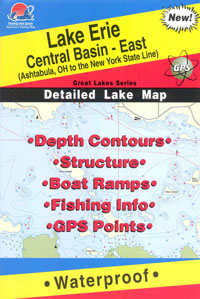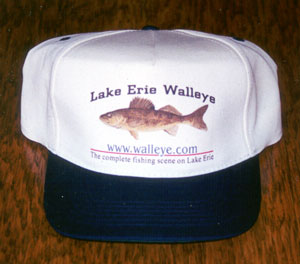|
Fall Bronzebacks
by Ron Anlauf
Take a nice early fall day, add a monster school of big
small mouth bass, and throw
 in a handful of the right lures and you have a
recipe for pure fun. Smallies can be one tough number during most of the
open water season, but not here, not now. Now is the time for hooking up and
hanging on, and doing it over and over again. Can it really be that good?
You bet it can, so much so that the State of Minnesota actually shuts the
season down by the second week in September. Lake state anglers can still
legally fish for smallies though, they just have to practice catch and
release. As good as it can be you still have to do the right things in the
right places to get in on the action and there’s no guarantee, but it’s as
close as you’re going to get. in a handful of the right lures and you have a
recipe for pure fun. Smallies can be one tough number during most of the
open water season, but not here, not now. Now is the time for hooking up and
hanging on, and doing it over and over again. Can it really be that good?
You bet it can, so much so that the State of Minnesota actually shuts the
season down by the second week in September. Lake state anglers can still
legally fish for smallies though, they just have to practice catch and
release. As good as it can be you still have to do the right things in the
right places to get in on the action and there’s no guarantee, but it’s as
close as you’re going to get.
Location
is the first piece to the giant bronzeback puzzle to place, and there a few
key elements to look for. For one; you’re going to have to find some rocks
and the more the merrier. It could be boulders the size of Buicks, or fist
sized rock and even gravel. According to Team Crestliner member and small
mouth bass aficionado John Janousek of Nisswa, Minnesota: “Fall hot spots
include shallow rocks with a fast break near deeper water, along with some
green weeds like cabbage or coontail nearby. The combination is a lead pipe
cinch for holding mega schools of fall smallies.”
Mega schools is what it’s all about and why the early fall period can be
so good. By late summer smallmouth bass that had been running in smaller
packs start to bunch up, and keep on bunching right into the cold water
period. Big numbers of fish pinned down in areas that are easily defined
helps to stack the odds of hooking up with at least a few in your favor. If
you’re on productive smallie waters ten and twenty fish days or more are a
real possibility, and why enthusiasts live for the fall period.
Although smallmouth bass don’t typically move that far, there are changes
in location that you should be aware of. Janousek on fall migrations; “I’ll
always look for shallow fish in the fall because they’re typically the most
active, but I’ll move deeper if I have to. Smallies will pull off of shallow
areas and move deeper and deeper and stack up on deep hard bottom areas.
Deeper areas may be twenty feet deep or more, and will depend on what’s
available.”
Once you’ve got a handle on the “where” the “how” has to be determined
and will depend on several factors including water temperature and existing
conditions, and just how far in to the early fall period you are. Good
presentations for the earliest part of the season include the standard fare
like crank baits, tubes and jig worms, as well as spinner baits. Crankbaits
like the Cotton Cordell C24 Super Spot can be run through shallow water
without constantly hanging up and are a top pick for working snag infested
rocks.
Spinner baits like Northland Tackle’s ˝oz Reed Runner can also be
effectively worked over and around rocks without getting into constant
trouble. Tube jigs and small plastic worms like the four inch Yum Boogee
Tail rigged with an exposed hook are a great choice for straining an area,
and can really produce when the fish aren’t all that active. Northland
Tackle’s new Rattlin’ Inner Tube Jig is perfect for rigging tube baits and
is designed to be slid inside the soft plastic lures and has the added
attraction of a brass rattle that can help to attract fish. Their Tip-up Jig
head works great with baits like the Boogee Tail, and has a double barb
system that helps to keep the bait pinned tight to the jig head. Although
the exposed hooks will mean more hang-ups and more break offs it will also
mean more fish hooked and landed, and that’s really what it’s all about.
When it comes to the hottest periods for finding active smallies Janousek
looks for sunny afternoons with flat dead calm conditions. “You can still
catch fish when it’s windy, it’s just that the calm sunny days seem to
produce the hottest action. If the sun’s been out fish will move up into
shallower water and can be quite active, even if the water temperatures are
below the fifty degree mark. Although not usually associated with colder
water; little crank baits burned across shallow rocky flats can really
produce and are always worth a few casts when the conditions are right.”
As the season progresses things do tend to slow down, although tremendous
catches can still be made. It’s just that you may have to give in and try
rigging some live bait, like a big red tail or creek chub. When it comes to
chubs smallmouth bass can’t seem to help themselves, and will hit the right
minnow with a vengeance. They’ll pound a red tail or creek chub and the
strike can be unmistakable. If you’re going to use live bait you can avoid
hooking fish too deep by setting the hook right away. You’ll probably miss a
few but there will be more, lots more. See you on the water. |





 in a handful of the right lures and you have a
recipe for pure fun. Smallies can be one tough number during most of the
open water season, but not here, not now. Now is the time for hooking up and
hanging on, and doing it over and over again. Can it really be that good?
You bet it can, so much so that the State of Minnesota actually shuts the
season down by the second week in September. Lake state anglers can still
legally fish for smallies though, they just have to practice catch and
release. As good as it can be you still have to do the right things in the
right places to get in on the action and there’s no guarantee, but it’s as
close as you’re going to get.
in a handful of the right lures and you have a
recipe for pure fun. Smallies can be one tough number during most of the
open water season, but not here, not now. Now is the time for hooking up and
hanging on, and doing it over and over again. Can it really be that good?
You bet it can, so much so that the State of Minnesota actually shuts the
season down by the second week in September. Lake state anglers can still
legally fish for smallies though, they just have to practice catch and
release. As good as it can be you still have to do the right things in the
right places to get in on the action and there’s no guarantee, but it’s as
close as you’re going to get.